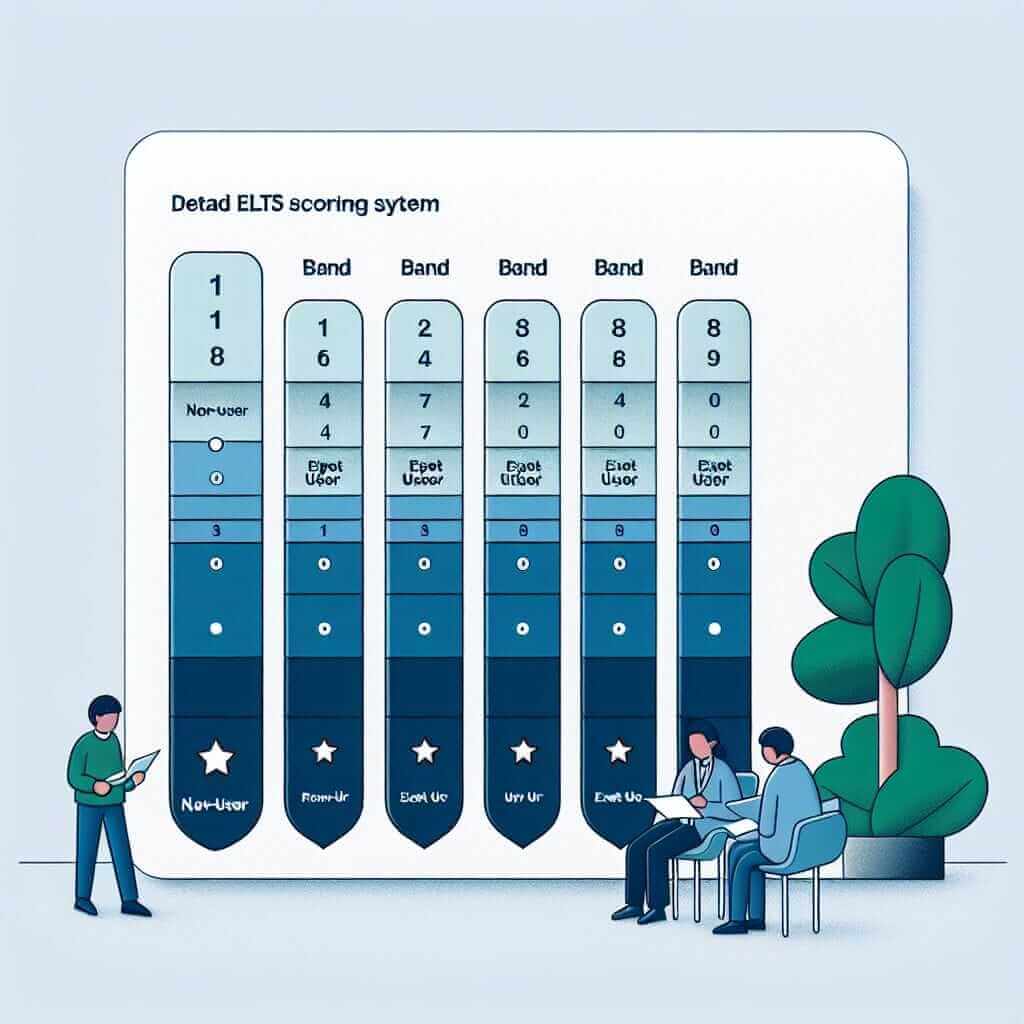As an IELTS instructor with over two decades of experience, I’ve encountered countless students perplexed by the IELTS scoring system. Understanding how your IELTS overall score is calculated is not just about demystifying the test, but also about strategizing your preparation for optimal results. This article will guide you through the intricacies of the IELTS scoring system, empowering you to approach the test with confidence.
Deciphering the IELTS Band Score
The International English Language Testing System (IELTS) uses a 9-band scoring system to assess your proficiency in English across four skills: Listening, Reading, Writing, and Speaking. Each skill receives an individual band score, ranging from 1 (non-user) to 9 (expert user). But how do these individual scores culminate in your overall band score? Let’s delve deeper.
The Mechanics of Calculating Your Overall IELTS Score
Your overall IELTS band score is the average of your individual band scores across all four skills. However, there’s a slight twist. The overall band score is rounded to the nearest half or whole band. Let’s illustrate this with a few examples:
Scenario 1:
- Listening: 7.0
- Reading: 6.5
- Writing: 7.0
- Speaking: 6.5
Calculation: (7.0 + 6.5 + 7.0 + 6.5) / 4 = 6.75
Overall Band Score: 7.0 (rounded to the nearest half band)
Scenario 2:
- Listening: 8.0
- Reading: 7.5
- Writing: 7.0
- Speaking: 7.0
Calculation: (8.0 + 7.5 + 7.0 + 7.0) / 4 = 7.375
Overall Band Score: 7.5 (rounded to the nearest half band)

Key Points to Remember
- Equal Weighting: Each of the four skills carries equal weight in determining your overall band score.
- Rounding: The overall band score is rounded to the nearest half or whole band.
- Half Bands: Yes, you can achieve half bands in your overall score, such as 6.5 or 7.5.
Strategic Tips for Maximizing Your IELTS Score
- Balanced Skill Development: Don’t neglect any skill. A balanced performance across all four skills is crucial for achieving a higher overall band score.
- Practice Tests: Take regular practice tests to familiarize yourself with the test format and identify areas that require improvement.
- Focus on Weaknesses: While maintaining your strengths is important, allocate more time and effort to improving your weaker areas.
- Seek Feedback: Request feedback from experienced IELTS instructors or English language professionals to gain insights into your performance and areas for growth.
Conclusion
Understanding how your IELTS overall score is calculated is the first step towards effective preparation. By focusing on balanced skill development, consistent practice, and strategic improvement, you can confidently approach the IELTS exam and achieve your desired results. Remember, your IELTS journey is unique to you, and with the right approach, success is well within your reach!